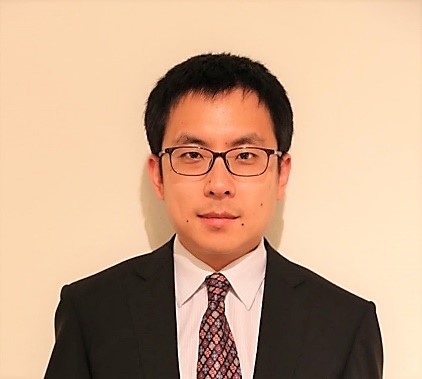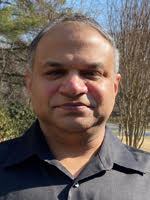Session 8: Digital health technologies and Digital Devices
Digital health technologies are transforming the healthcare industry at large. With clinical research quickly adopting decentralized clinical trials, the use of patient sensors, wearables, and mobile apps is increasingly common in drug development. In contrast to more traditional patient data collection methods such as electronic data capture (EDC), these technologies have the potential to aid drug development, improve patient experience, as well as diversify patient populations enrolling in clinical trials. This session will explore how digital health technology and electronic devices can aid the drug development process, while simultaneously evaluating challenges associated with their use for data collection. You can expect to learn about industry trends and evaluate use cases associated with digital health technology and devices, while exchanging ideas for further advancement in this space.
Chairs: Rebecca Taha, ICON; JingJing Ye, BeiGene
 Rebecca Taha PhD, MBA, a portfolio
strategist and statistician has served the life sciences and
healthcare industry for over 20 years. As Director, she
supports biotechnology and biopharma organizations around
the globe, providing strategic consulting and advisory
services. Previously, she supported numerous pharmaceutical
and device development programs, most recently as a senior
research scientist at Eli Lilly and Company in Global
Statistical Sciences. Dr. Taha received her MS and PhD from
the University of Kentucky in Statistics and Gerontology,
respectively, and her MBA from the Kelley School of
Business.
Rebecca Taha PhD, MBA, a portfolio
strategist and statistician has served the life sciences and
healthcare industry for over 20 years. As Director, she
supports biotechnology and biopharma organizations around
the globe, providing strategic consulting and advisory
services. Previously, she supported numerous pharmaceutical
and device development programs, most recently as a senior
research scientist at Eli Lilly and Company in Global
Statistical Sciences. Dr. Taha received her MS and PhD from
the University of Kentucky in Statistics and Gerontology,
respectively, and her MBA from the Kelley School of
Business.
 Dr. Jingjing Ye is an executive
director and currently leads a global team, Data Science and
Digital Innovations (DSDI), with Global Statistics and Data
Sciences (GSDS) in BeiGene. She has over 17 years’
experience in pharmaceutical industry and US FDA, with focus
in cancer drug discovery and development. Her statistical
and regulatory experience expands full spectrum on patients’
treatment journey from diagnosis, treatment, to living with
the condition. She is very active in statistical communities
in US and between US and China DIA communities, including
leading several cross-disciplinary and cross-company working
groups. She received her PhD degree in statistics from
University of California, Davis and BS in applied
mathematics from Peking University.
Dr. Jingjing Ye is an executive
director and currently leads a global team, Data Science and
Digital Innovations (DSDI), with Global Statistics and Data
Sciences (GSDS) in BeiGene. She has over 17 years’
experience in pharmaceutical industry and US FDA, with focus
in cancer drug discovery and development. Her statistical
and regulatory experience expands full spectrum on patients’
treatment journey from diagnosis, treatment, to living with
the condition. She is very active in statistical communities
in US and between US and China DIA communities, including
leading several cross-disciplinary and cross-company working
groups. She received her PhD degree in statistics from
University of California, Davis and BS in applied
mathematics from Peking University.
To Establish a Digital Bond of gGlobal Drug Development
Chao Liu, CFO & Co-Founder, PI Health
 Dr. Liu is a founding member and serves as
the Chief Financial Officer in Pi Health, a technology
company dedicated to facilitating the development of
innovative drugs globally. He is responsible for the
company's capital management, financial decision-making, and
strategic planning. Additionally, he also served as the
general manager of Pi Health's China business, overseeing
the establishment, daily operations, and business expansion
of the company in China. Dr. Liu Chao joined the Applied
Innovation Team at BeiGene in 2019, serving as the Senior
Director of Quantitative Solutions. His primary
responsibilities include developing the Competitive
Intelligence Center for Oncology Innovative Drugs, and
conducting market assessments, revenue forecasts, and
real-time valuations for the core products of applied
innovation.
Dr. Liu is a founding member and serves as
the Chief Financial Officer in Pi Health, a technology
company dedicated to facilitating the development of
innovative drugs globally. He is responsible for the
company's capital management, financial decision-making, and
strategic planning. Additionally, he also served as the
general manager of Pi Health's China business, overseeing
the establishment, daily operations, and business expansion
of the company in China. Dr. Liu Chao joined the Applied
Innovation Team at BeiGene in 2019, serving as the Senior
Director of Quantitative Solutions. His primary
responsibilities include developing the Competitive
Intelligence Center for Oncology Innovative Drugs, and
conducting market assessments, revenue forecasts, and
real-time valuations for the core products of applied
innovation.
Before joining BeiGene, Dr. Liu worked at the U.S. Food and Drug Administration (FDA) from 2014 to 2019, responsible for the review of new drugs. Prior to his departure, he served as the review team leader of pharmacometrics, focusing on oncology, hematology, cardiovascular diseases, and infectious diseases. During his tenure at the FDA, Dr. Liu and his review team were involved in the review of hundreds of IND research applications and dozens of NDA/BLA marketing applications, including the FDA marketing applications for the first two CAR-T cell therapies (Kymriah and Yescarta). Additionally, he participated in the drafting and publication of multiple FDA guidances.
Dr. Liu received a Ph.D. in Immunology and a Master's degree in Statistics from the University of Florida. Previously, he obtained his undergraduate degree in Life Sciences from Nankai University.
Digital Health Technologies in Clinical Investigations
Vinay Pai, FDA/CDRH
 Vinay Pai is a digital health specialist
in the US Food and Drug Administration’s Center for Devices
and Radiological Health, Office of Strategic Partnerships
and Technology Innovation, Division of Digital Health,
having joined the FDA in September of 2019. Prior to that,
Pai was at the National Institutes of Health, first as a
staff scientist in the National Heart, Lung, and Blood
Institute (working on MRI and CT technology development and
image processing and researching cardiac function in humans
and mice models) and then as a program officer and division
director for biomedical imaging informatics and health
informatics at the National Institute of Biomedical Imaging
and Bioengineering.
Vinay Pai is a digital health specialist
in the US Food and Drug Administration’s Center for Devices
and Radiological Health, Office of Strategic Partnerships
and Technology Innovation, Division of Digital Health,
having joined the FDA in September of 2019. Prior to that,
Pai was at the National Institutes of Health, first as a
staff scientist in the National Heart, Lung, and Blood
Institute (working on MRI and CT technology development and
image processing and researching cardiac function in humans
and mice models) and then as a program officer and division
director for biomedical imaging informatics and health
informatics at the National Institute of Biomedical Imaging
and Bioengineering.
Pai holds a PhD in mechanical engineering from Florida State University and an MBA from Johns Hopkins University.
Abstract: In this talk, I will discuss FDA’s perspectives on the use of digital health technologies in clinical investigations. This will focus on the recently released final guidance on Digital Health Technologies for Remote Data Acquisitions in Clinical Investigations. Aspects related to fit-for-purpose, steps to consider when deciding if a DHT is fit-for-purpose, and how to justify endpoints measured using data collected from DHTs will be presented in this talk. I will also briefly touch on a recently released draft guidance on the use of real-world data/real-world evidence to support regulatory decision-making.
Redefining Patient Assessment in Clinical Trials with Digital Technologies
Nishit Agarwal, Medidata Solutions
 Nishit Agarwal is a Data Science
Engineer at Medidata, where he leverages his expertise in
medical AI, wearable sensor technology, machine learning for
healthcare, and advanced biomedical signal processing.
Holding a master’s degree in bioengineering from
Northeastern University, Nishit specializes in extracting
meaningful insights and novel biomarkers from various sensor
modalities including ECG, PPG, EMG, and EEG, contributing
significantly to the field of medical technology. At
Medidata, Nishit has made notable strides, particularly in
building advance signal processing, feature extraction
pipelines to develop and validate novel biomarkers and
generate valuable evidence for clinical trials. His prior
innovations include classifying pulse patterns from wearable
PPG sensors for diabetic classification, inspired by the
principles of ancient Indian medicine. He has co-authored a
white paper validating an algorithm for EEG-based focus
estimation and played a pivotal role in the development of
dry EEG Headphones and Analytics platform.
Nishit Agarwal is a Data Science
Engineer at Medidata, where he leverages his expertise in
medical AI, wearable sensor technology, machine learning for
healthcare, and advanced biomedical signal processing.
Holding a master’s degree in bioengineering from
Northeastern University, Nishit specializes in extracting
meaningful insights and novel biomarkers from various sensor
modalities including ECG, PPG, EMG, and EEG, contributing
significantly to the field of medical technology. At
Medidata, Nishit has made notable strides, particularly in
building advance signal processing, feature extraction
pipelines to develop and validate novel biomarkers and
generate valuable evidence for clinical trials. His prior
innovations include classifying pulse patterns from wearable
PPG sensors for diabetic classification, inspired by the
principles of ancient Indian medicine. He has co-authored a
white paper validating an algorithm for EEG-based focus
estimation and played a pivotal role in the development of
dry EEG Headphones and Analytics platform.
Abstract:
In the rapidly evolving domain of wearable sensor technology, the fusion of intricate sensor data with advanced data science methodologies promises to redefine clinical diagnostics and research. The "At Home 6-Minute Walk Test" (AH-6MWT), harnesses mobile technology and wearable sensors for remote monitoring, thereby upscaling patient participation and data collection. In contrast to the current gold standard of the manually recorded six-minute walk test distance (6MWD), our technique leverages accelerometer-derived features for estimating walking distance algorithmically, which removes the need for human supervision by physicians. Our analysis incorporates continuous ECG and accelerometer data from both unsupervised at-home and supervised in-clinic 6MWT tests, assessing novel biomarkers for functional capacity in a large cohort of PAH & HF patients over several visits. The findings reveal a strong correlation (Pearson correlation of 0.91, n=394) between the true 6-minute walk distance and our algorithm-estimated distance, with a minimal Bland-Altman difference of 0.52%. The repeatability of the estimated 6-minute walk distances in clinical settings demonstrated slightly higher consistency (Pearson correlation of 0.93, n=83) compared to the actual distances (Pearson correlation of 0.90, n=83). At-home the estimated 6-minute walk distances showed a comparable repeatability rate (Pearson correlation of 0.96, n=62). Furthermore, when comparing the output from two different sensor hardware using the same algorithm, a high Pearson correlation of 0.975 (n=243) was observed, indicating robust hardware independence. These results validate the accuracy, repeatability, reliability, and hardware independence of our biomarker, showcasing its potential to significantly improve functional capacity assessment in clinical settings. This achievement illustrates the potential of digital technologies to enhance clinical trial efficacy and participant diversity, paving the way for more nuanced and patient-centric research methodologies.